
Ranongga Island: A Hidden Gem in the Solomon Islands
Ranongga Island, nestled in the Solomon Islands, is a paradise for nature lovers and adventure seekers alike. Its lush rainforests, pristine beaches, and crystal-clear waters offer a serene escape from the hustle and bustle of modern life. The island is a haven for those who enjoy snorkeling and diving, with vibrant coral reefs teeming with marine life just waiting to be explored. The clear waters also make it an ideal spot for kayaking and swimming. The island is rich in cultural heritage, with local tribes still practicing traditional ways of life. Visitors can immerse themselves in the local culture by participating in traditional dances, sampling local cuisine, and learning about the island's history from the warm and welcoming locals. The island's villages are picturesque, each offering a unique glimpse into the daily lives of its inhabitants. Hiking enthusiasts will find plenty to explore, with trails that lead through dense forests to breathtaking viewpoints. The island's diverse flora and fauna make every hike an adventure, with the chance to spot rare birds and plants along the way. For those looking to unwind, the island's secluded beaches provide the perfect setting for relaxation and reflection.
Local tips in Ranongga Island
- Bring reef-safe sunscreen to protect the coral reefs while enjoying water activities.
- Hire a local guide to gain deeper insights into the island's culture and history.
- Carry enough local currency as ATMs and card payment options are limited.
- Visit during the dry season (May to October) for the best weather conditions.
- Respect local customs and traditions by dressing modestly and asking for permission before taking photographs.
When is the best time to go to Ranongga Island?
Markets, malls and hidden boutiques
Dive Gizo
Uncover the breathtaking underwater world with Dive Gizo, your gateway to the Solomon Islands' vibrant marine life and stunning dive sites.
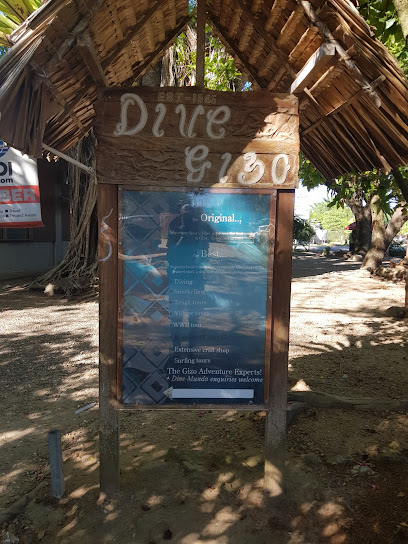
Ranongga Island
Explore Ranongga Island: A hidden paradise in the Solomon Islands, perfect for snorkeling, cultural experiences, and tranquil beach retreats.
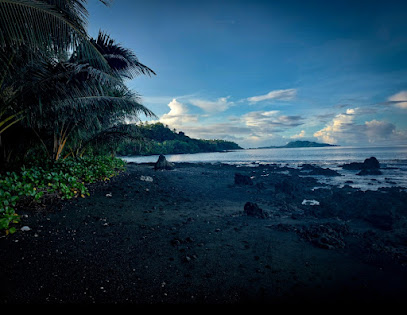
Gizo Township
Discover the lively Gizo Township Market, showcasing local culture, fresh produce, and a gateway to stunning Solomon Islands adventures.
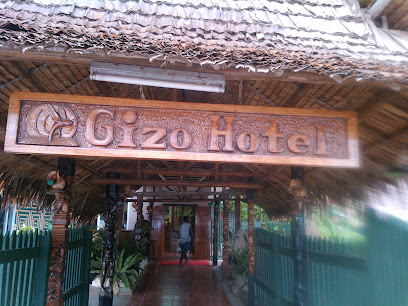
Gold Shing Trading Ltd
Explore the vibrant shopping scene at Gold Shing Trading Ltd in Gizo, where local culture and unique souvenirs await every visitor.

penuna
Experience the unspoiled beauty of Penuna on Ranongga Island, where stunning landscapes and rich culture await every traveler.

Ibibu Bread Shop
Experience the essence of Munda at Ibibu Bread Shop, where fresh breads and pastries create a delightful culinary journey.
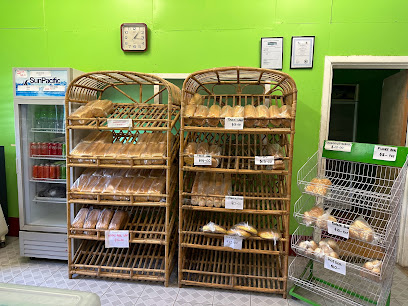
Jononi Enterprise
Explore Gizo with ease at Jononi Enterprise, your go-to convenience store for local products, snacks, and essentials during your travels.
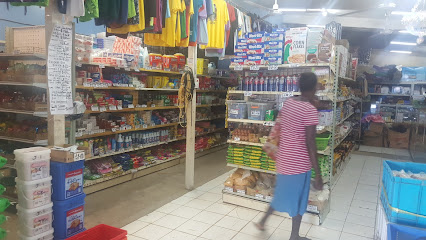
Coffee Station
Discover the flavors of Gizo at Coffee Station, where great coffee meets a relaxing ambiance in the heart of the Solomon Islands.
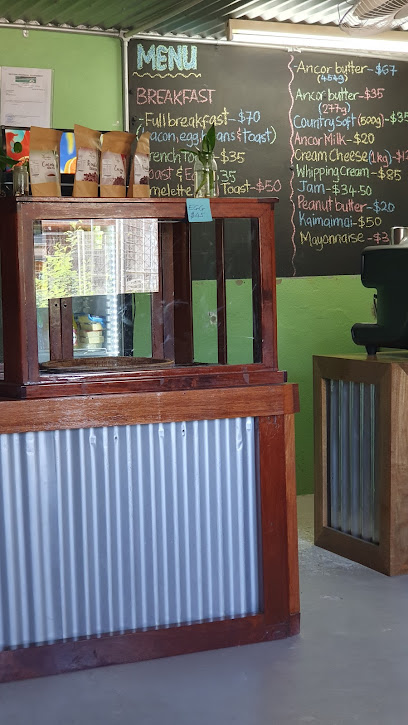
Gizo Main Market
Discover the vibrant Gizo Main Market, where local culture, fresh produce, and unique crafts come together in a lively island atmosphere.
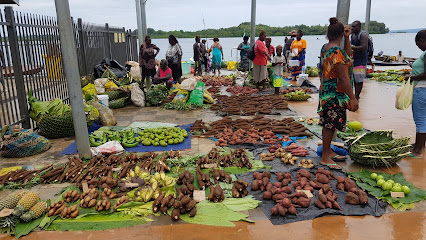
Bales & Beyond
Explore the vibrant Bales & Beyond clothes market in Gizo for unique local and international fashion offerings in a lively atmosphere.
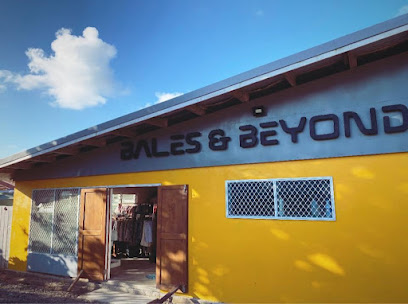
Sunshine shop
Explore the unique offerings at Sunshine Shop in Gizo, where local culture meets everyday convenience amidst stunning island beauty.

Wing Sun Co
Discover local flavors and boating essentials at Wing Sun Co, Gizo's premier grocery and outboard motor store, perfect for island exploration.
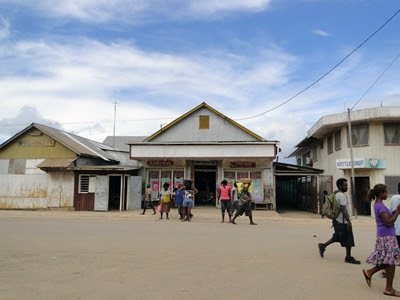
Gizo Daily Bread Kitchen
Experience the authentic flavors of Gizo at Daily Bread Kitchen, a local bakery offering fresh breads and delicious pastries in the heart of the Solomon Islands.

Solomon Brothers Bottle Shop
Explore the vibrant flavors of Munda at Solomon Brothers Bottle Shop, your destination for local and imported beverages.
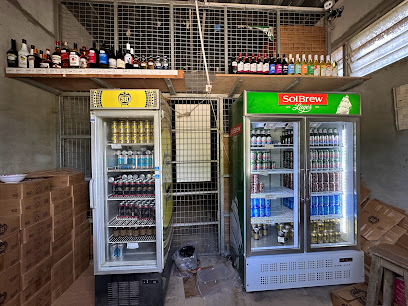
Zunuba shop
Explore Zunuba Shop in Lunga: Your go-to destination for authentic gifts and souvenirs from the Solomon Islands, celebrating local craftsmanship and culture.

Essential bars & hidden hideouts
Heritage Park Hotel
Experience luxury and comfort at Heritage Park Hotel in Honiara, the gateway to the beautiful Solomon Islands.
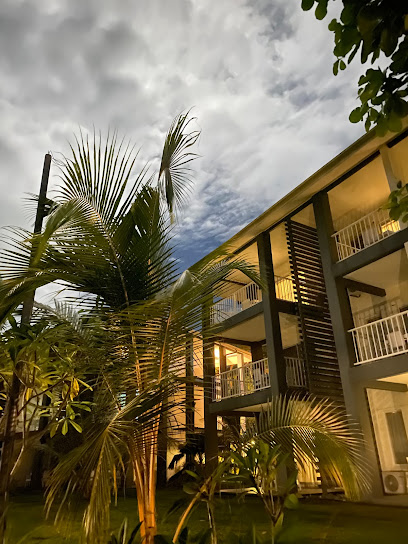
Breakwater Cafe
Experience local flavors and stunning ocean views at Breakwater Cafe, a culinary gem in Honiara, Solomon Islands.
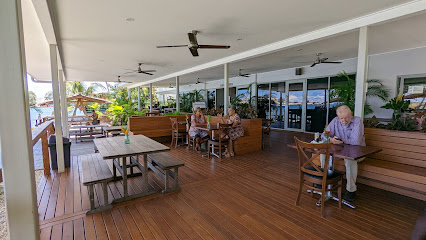
Coral Sea Resort & Casino
Discover the ultimate blend of relaxation and entertainment at Coral Sea Resort & Casino in Honiara, a tropical paradise filled with luxury and adventure.

King Solomon Hotel
Experience the unique charm of King Solomon Hotel in Honiara, a perfect blend of traditional beauty and modern comforts for every traveler.

Pacific Casino Hotel
Discover the charm of Honiara at Pacific Casino Hotel, where comfort meets local culture in the heart of the Solomon Islands.

The Coffee Bar
Discover the perfect blend of rich flavors and cozy ambiance at The Coffee Bar in Honiara, your go-to cafe in the Solomon Islands.
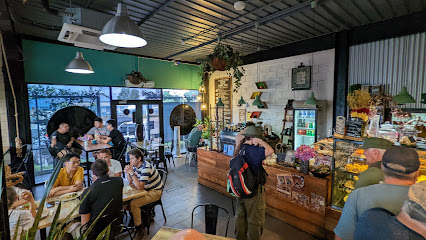
Tenkai Sushi Cafe
Experience authentic Japanese cuisine at Tenkai Sushi Cafe, Honiara's premier destination for fresh sushi and traditional dishes.
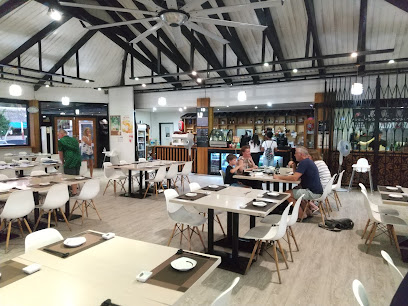
Fatboys Resort
Experience the ultimate retreat at Fatboys Resort in Gizo, where relaxation meets adventure in a tropical paradise.

Agnes Lodge
Discover the beauty of Munda at Agnes Lodge, your serene retreat in the Solomon Islands, perfect for relaxation and adventure.

Gizo Hotel
Experience the charm and tranquility of Gizo Hotel, a perfect base for your adventures in the Solomon Islands.
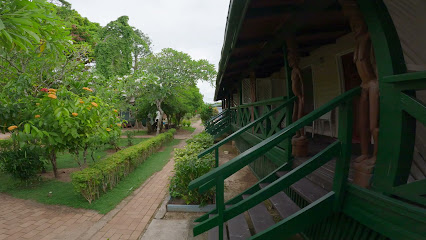
Imagination Island Coral Reef Resort
Discover the enchanting beauty and luxury of Imagination Island Coral Reef Resort in the Solomon Islands, where adventure meets relaxation in a tropical paradise.

Haydn's Steakhouse
Indulge in the finest steaks and local flavors at Haydn's Steakhouse in Honiara, where every meal is a celebration of culinary excellence.
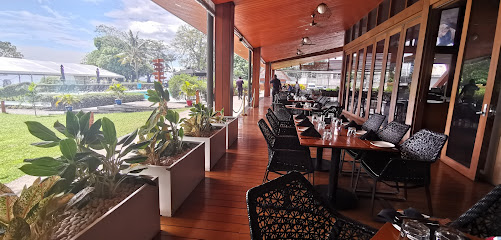
Ranongga Island
Experience the tranquility and natural beauty of Ranongga Island, a hidden gem in the Solomon Islands with stunning beaches and rich marine life.
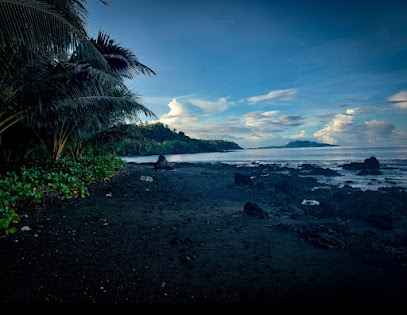
Lambete Market
Experience the vibrant culture and local flavors at Lambete Market in Munda, a must-visit destination for every traveler in the Solomon Islands.
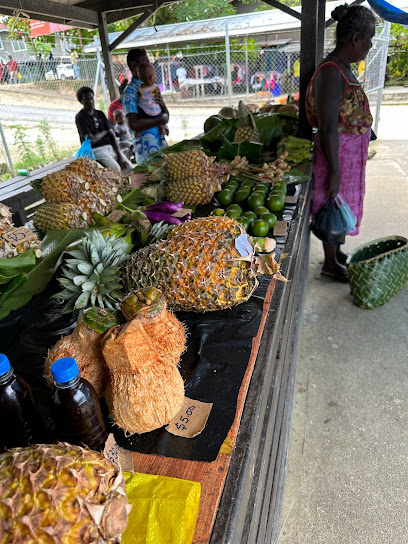
Tolavaena bar and Club
Experience the vibrant nightlife of Munda at Tolavaena Bar and Club, where local culture meets unforgettable entertainment and delicious drinks.

Local Phrases about Ranongga Island
-
- HelloKare
[ka-reh] - GoodbyeKwaio
[kwai-yo] - YesOo
[oh] - NoAe
[ai] - Please/You're welcomeKwai
[kwai] - Thank youWanisimwane
[wa-nee-see-mwa-neh] - Excuse me/SorryKwaree
[kwa-ree] - How are you?Kwaree asikwana?
[kwa-ree a-see-kwa-nah] - Fine. And you?Asikwana. Oo asikwana?
[a-see-kwa-nah. oh a-see-kwa-nah] - Do you speak English?Oo asikwanana Inglish?
[oh a-see-kwa-nah-nah ing-glish] - I don't understandAe wala kwaree
[ai wa-la kwa-ree]
- HelloKare
-
- I'd like to see the menu, pleaseAe kwane wala kwaree menu
[ai kwa-neh wa-la kwa-ree menu] - I don't eat meatAe kwane ai kwaree kaetoo
[ai kwa-neh ai kwa-ree ka-eh-too] - Cheers!Kwai kwai
[kwai kwai] - I would like to pay, pleaseAe kwane wala kwaree
[ai kwa-neh wa-la kwa-ree]
- I'd like to see the menu, pleaseAe kwane wala kwaree menu
-
- Help!Kwaree!
[kwa-ree] - Go away!Lae kwaree!
[lae kwa-ree] - Call the Police!Oo wala kwaree Polis!
[oh wa-la kwa-ree po-lis] - Call a doctor!Oo wala kwaree dokta!
[oh wa-la kwa-ree dok-tah] - I'm lostAe kwane ai lae
[ai kwa-neh ai lae] - I'm illAe kwane ai mwe
[ai kwa-neh ai mwe]
- Help!Kwaree!
-
- I'd like to buy...Ae kwane lao ...
[ai kwa-neh la-o] - I'm just lookingAe kwane ai kwaree kwaree
[ai kwa-neh ai kwa-ree kwa-ree] - How much is it?Kwaree kwaree ae?
[kwa-ree kwa-ree ai] - That's too expensiveWala kwaree too sasae
[wa-la kwa-ree too sa-sa-eh] - Can you lower the price?Oo wala kwaree too kwaree?
[oh wa-la kwa-ree too kwa-ree]
- I'd like to buy...Ae kwane lao ...
-
- What time is it?Kwaree kwaree?
[kwa-ree kwa-ree] - It's one o'clockWala ae wala kwee
[wa-la ai wa-la kwee] - Half past (10)Kwaree kwaree (10)
[kwa-ree kwa-ree (10)] - MorningKwane
[kwa-neh] - AfternoonWala Kwane
[wa-la kwa-neh] - EveningMwe
[mweh] - YesterdayWala lae
[wa-la lae] - TodayAe wala
[ai wa-la] - TomorrowWala ae
[wa-la ai] - 1Ae
[ai] - 2Rua
[roo-ah] - 3Tolu
[toh-loo] - 4Fa
[fah] - 5Lima
[lee-mah] - 6Ono
[oh-noh] - 7Hitu
[hee-too] - 8Walu
[wah-loo] - 9Siwa
[see-wah] - 10Noo
[noh]
- What time is it?Kwaree kwaree?
-
- Where's a/the...?Kwaree wala...
[kwa-ree wa-la] - What's the address?Kwaree wala afres?
[kwa-ree wa-la af-res] - Can you show me (on the map)?Oo wala kwaree lao (on the map)?
[oh wa-la kwa-ree la-o] - When's the next (bus)?Kwaree wala ae (bus)?
[kwa-ree wa-la ai] - A ticket (to ....)Ae tiket (to ....)
[ai ti-ket]
- Where's a/the...?Kwaree wala...
History of Ranongga Island
-
Ranongga Island, part of the Solomon Islands, has been inhabited for thousands of years. Archaeological findings suggest that the island's first settlers arrived around 1000 BCE, bringing with them the Lapita culture. These early inhabitants were expert navigators and skilled artisans, known for their distinctive pottery decorated with intricate geometric designs.
-
The traditional life on Ranongga Island has been deeply rooted in subsistence farming, fishing, and a strong sense of community. Customary practices, including elaborate ceremonies and rituals, play a crucial role in the island's culture. These practices are often tied to the land and sea, reflecting the islanders' profound connection to their natural environment.
-
The first recorded European contact with Ranongga Island occurred in the late 18th century when British and French explorers navigated the Solomon Sea. These early encounters were sporadic and often marked by misunderstandings and cultural clashes. The island's remote location meant that it remained largely untouched by European influence until the late 19th century.
-
In the late 19th and early 20th centuries, Ranongga Island, like much of the Solomon Islands, came under British protectorate. During this period, Christian missionaries arrived, establishing schools and churches. The introduction of Christianity significantly impacted the island's cultural landscape, blending with and at times overshadowing traditional beliefs and practices.
-
Ranongga Island played a strategic role during World War II. The Battle of the Solomon Sea, a series of naval engagements between Allied and Japanese forces, saw significant activity in the surrounding waters. The island served as a vantage point and refuge for both soldiers and local inhabitants. Remnants of this era, including relics and stories of wartime experiences, remain part of the island's historical tapestry.
-
Following the Solomon Islands' independence from British colonial rule in 1978, Ranongga Island began to navigate the challenges and opportunities of self-governance. Efforts to preserve traditional culture while embracing modernity have shaped the island’s contemporary identity. The island continues to thrive on its rich heritage, natural resources, and the resilience of its people.
-
In recent years, there has been a concerted effort to revive and preserve the unique cultural heritage of Ranongga Island. This includes the documentation of traditional knowledge, languages, and practices, as well as the promotion of eco-tourism. These initiatives aim to sustain the island's cultural legacy for future generations while fostering a deeper appreciation among visitors.
Ranongga Island Essentials
-
Ranongga Island is located in the Western Province of the Solomon Islands. The nearest airport is Munda Airport, which can be reached by domestic flights from Honiara, the capital of the Solomon Islands. From Munda, you can take a boat or a ferry to Ranongga Island. The boat ride typically takes around 2-3 hours, depending on sea conditions. It is advisable to arrange transportation in advance through local tour operators or your accommodation.
-
Once on Ranongga Island, transportation options are limited. The island's small size means that many areas can be reached on foot. For longer distances, local boats and canoes are commonly used. There are no car rental services or public buses on the island, so it is essential to plan your travel logistics beforehand. Bicycles may be available for rent at some guesthouses.
-
The official currency of the Solomon Islands is the Solomon Islands Dollar (SBD). It is crucial to carry enough cash with you, as there are no ATMs on Ranongga Island. Credit cards are rarely accepted, so ensure you have sufficient cash for your expenses. It is advisable to withdraw cash in Honiara or Munda before traveling to Ranongga.
-
Ranongga Island is generally safe for tourists, with low crime rates. However, it is always wise to take standard precautions. Avoid walking alone at night, and keep your belongings secure, especially in crowded areas. There are no specific high-crime areas targeting tourists, but staying aware of your surroundings is always best. Additionally, be mindful of natural hazards such as rough seas and strong currents when participating in water activities.
-
In case of emergency, the local police station and medical facilities are available in the nearby town of Munda. It is essential to have travel insurance that covers medical emergencies. For minor health issues, some guesthouses may have basic first aid supplies. Always carry a basic medical kit with you, including any personal medications you may need. The emergency contact number in the Solomon Islands is 999.
-
Fashion: Do dress modestly, especially in villages and religious sites. Avoid wearing revealing clothing. Religion: Do respect local customs and traditions. Always ask for permission before taking photos of people or religious sites. Public Transport: As there is no formal public transport system, do be patient and flexible when arranging transportation. Greetings: Do greet people with a smile and a friendly 'hello.' A handshake is also a common greeting. Eating & Drinking: Do try local foods and accept food offerings graciously. Don't refuse hospitality, as it is considered impolite.
-
To experience Ranongga Island like a local, visit the local markets where you can buy fresh produce and traditional goods. Engage with the locals; they are often friendly and willing to share their stories and knowledge about the island. Participate in community events and traditional ceremonies if invited. Don't miss exploring the island's beautiful beaches, coral reefs, and hiking trails for a truly immersive experience.
Nearby Cities to Ranongga Island
-
Things To Do in Taro Island
-
Things To Do in Arawa
-
Things To Do in Yandina
-
Things To Do in Honiara
-
Things To Do in Tulagi
-
Things To Do in Auki
-
Things To Do in Kokopo
-
Things To Do in Rabaul
-
Things To Do in Alotau
-
Things To Do in Kimbe
-
Things To Do in Kavieng
-
Things To Do in Port Moresby
-
Things To Do in Lata
-
Things To Do in Lae
-
Things To Do in Madang



